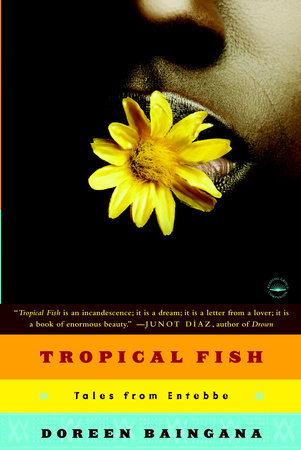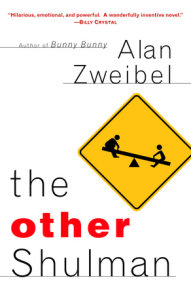READERS GUIDE
Tropical Fish details the coming of age of three sisters after the fall of the Idi Amin regime in Uganda. The questions that follow are meant to spark discussion about the impact of politics, faith, and culture on their progress to adulthood, as well as debate on what it truly means to be at home.Questions and Topics for Discussion
1. Discuss the stereotypes you associate with Africa and Africans. How does Baingana shatter and/or reinforce those images and ideas in the stories that comprise Tropical Fish?
2. In many coming-of-age stories, the main focus is on establishing identity and a sense of belonging. How do Christine, Patti, and Rosa “come of age” throughout the collection? What are the markers of their developing sense of self? Which of the sisters resonates with you the most? Do you find them likable?
3. Discuss the battle between traditional African religion (juju) and the influence of Christianity that is woven throughout the collection. How does Baingana illustrate each as an influential force in the Mugisha household? How do both strands of belief affect the development of the three sisters?
4. In the story “Tropical Fish,” Baingana writes: “The Nile perch is ugly and tasteless, but it is huge, and provides a lot more food for the populace. But it was eating up all the smaller, rarer, gloriously colored tropical fish. Many of these rare species were not named, let alone discovered, before they disappeared. Every day, somewhere deep and dark, it was too late.” (p. 109)
How does this passage encapsulate the political and economic state of Uganda as presented throughout the collection? How does it represent Christine’s relationship with Peter and her own feelings about herself? And with regard to the rest of the collection, how does it underscore the sisters’ relationships with people outside their immediate family?
5. In “A Thank-You Note,” Baingana humanizes and personalizes the AIDS crisis in Africa. Did you find anything startling about Rosa’s voice in this story? If so, what? How does this story globalize notions of sexuality? How does the author use the exuberance of youth to underscore the nature of the epidemic?
6. Christine’s childlike wonder at the relationship between her parents in “Green Stones” is gradually brought down to earth with the revelation of infidelity and alcoholism. What are your feelings about Maama’s decision to stick by her husband through it all? How does her relationship with Taata shape her life without him and her relationship with her daughters? What does his death instill in Maama?
7. In “Hunger,” Patti’s relationships with God and her peers are severely tested. How does her inner voice (her diary voice) differ from her actions? Do you find her to be long – suffering or a complainer? How does she doubt herself and her sense of belonging at the Gayaza High School? Do you believe she is truly at peace after her experience at the fellowship meeting?
8. How do Christine’s feelings about home evolve over the course of the stories? Compare her decision to explore the Western world to Patti’s decision to remain at home. Of the two sisters, who do you believe is more at home with herself by the collection’s end?
9. How does Christine’s experience of racism in Los Angeles and Washington differ from her experience in Uganda? What are the similarities? How does Ugandan culture inform her experiences abroad? How does leaving Uganda and becoming more immersed in American culture affect her relationships with other Ugandans? What lessons does she take back to Uganda with her? Do you think she is an idealist at heart?






















